
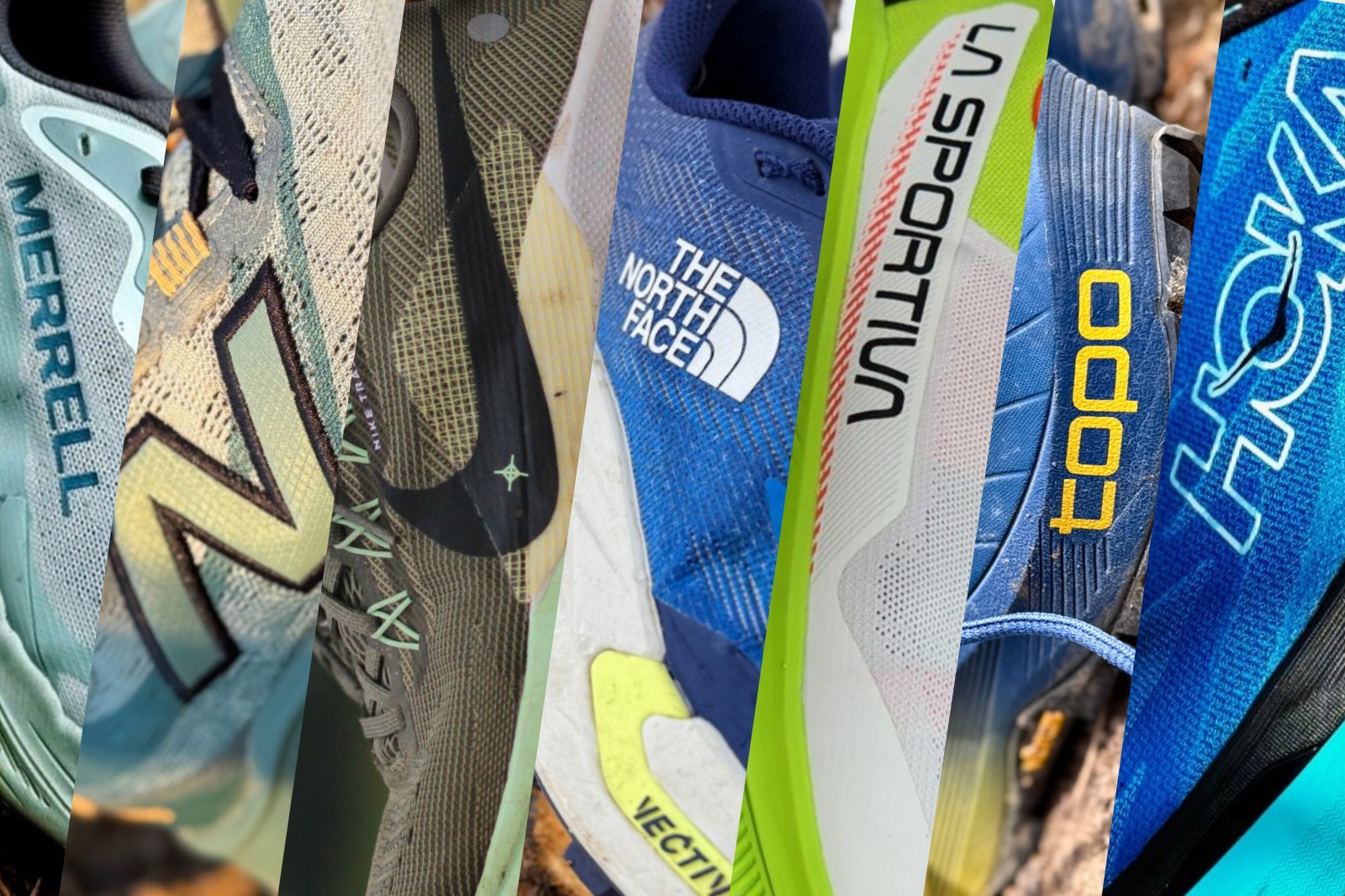
We independently review everything we recommend. When you buy through our links, we may earn a commission.
We break down the best shoes to get you started on dirt
From aggressive rockers to low drops, we picked some of everything
Any questions? Drop it in the comments. Otherwise, enjoy the ride.
Getting started is always the toughest step, especially with something brand new. We know, as well as anybody else, that finding the right gear can be a major barrier to taking the first steps.
We also know that finding the right equipment can be a catalyst for launching into your new favorite sport. Because I think trail running is one of the most valuable activities, I want to give a fairly synthesized list of the thing that pays the most considerable dividends in a trail running experience: shoes.
Footwear options for trail running are plentiful these days. There’s pretty much a shoe for every preference and scenario. Analysis paralysis is a real thing for even the most experienced trail runners.
Trail running, as compared to road running, has a lot more variables that can contribute to your optimal footwear choice. Most of the options below are handpicked largely because they are shoes that can cover a range of conditions and terrain.
Know that our expert reviewers have been in all of the following shoes, so we can vouch for each of these based on our own experiences. This list also includes options from most brands. If you have a favorite fit or positive experience with a brand, you may want to start there! Otherwise, jump right into the plethora of legitimately good options for trail running.
Don’t worry, we’ll keep the English lesson light and fast on this one — just like some of the shoes on this list. You’ll always need to know a few shoe-related terms, whether you’re new to running or just new to the wilds.
The total amount of cushioning between your foot and the ground, measured at the heel and forefoot. Higher stacks = more impact protection, often at the cost of ground feel.
The drop is the difference between those two measurements.
The cushioning material underfoot. Common types include EVA (traditional, durable), supercritical foams like PEBA (ultra-light, bouncy), TPEE-based blends (responsive but a bit firmer), and brand-specific versions like Brooks DNA Loft v3, Adidas Lightstrike Pro, Saucony PWRRUN PB, or Puma Nitrofoam.
A curved sole shape designed to help you roll forward smoothly, reducing the work your legs do with each step.
Design elements that help control excessive inward or outward foot motion. Can be “traditional” (firm medial posts) or “stable neutral” (wider base, sculpted sidewalls).
The grip layer on the bottom of the shoe. Carbon rubber is denser and longer-wearing; blown rubber is lighter and softer. Some brands use proprietary blends like Continental (Adidas), Puma Grip, Goodyear (Skechers), or ASICSGRIP for extra traction.
The fabric and structure that holds your foot. Engineered mesh, knit, and jacquard uppers balance breathability, support, and comfort.

A variety of trails
10.3 oz. (293 g) for a US M9,
8.6 oz. (245 g) for a US W7
32.5 mm in heel, 24.5 mm in forefoot (8 mm drop)
I don’t know anyone who would argue with a budget-friendly option if it can cover all the bases. That’s our reviewers’ take on the Adidas Terrex Agravic 3. It has the fit, underfoot protection, and grip to run on a variety of trails and paces. It’s a simple but quality option for trail running on smooth to semi-technical trails.
Drawbacks? Perhaps not our top pick for some of the more technical terrain or more difficult trails.

Long, slow days on the trails
9.8 oz. (277 g) for a US M9,
8.6 oz. (243 g) for a US W7
29 mm in heel, 29 mm in forefoot (0 mm drop)
Altra is known for a more roomy “foot-shaped” toe box (rounded, not pointed) and zero drop from heel to toe. The Timp 5 is the brand’s medium-cushioned trail runner. Our reviewers loved the Ego Max midsole foam, which brought comfort and some fun underfoot, while the toe box had more wiggle room for the toes. Any time you see Vibram Megagrip on a shoe, grip is pretty much guaranteed. All in all, this is a comfortable mid-range option for the trails.
Drawbacks? If you’re not used to zero-drop shoes, we’d recommend taking a few walks or hikes just to get yourself acclimated before you jump in.
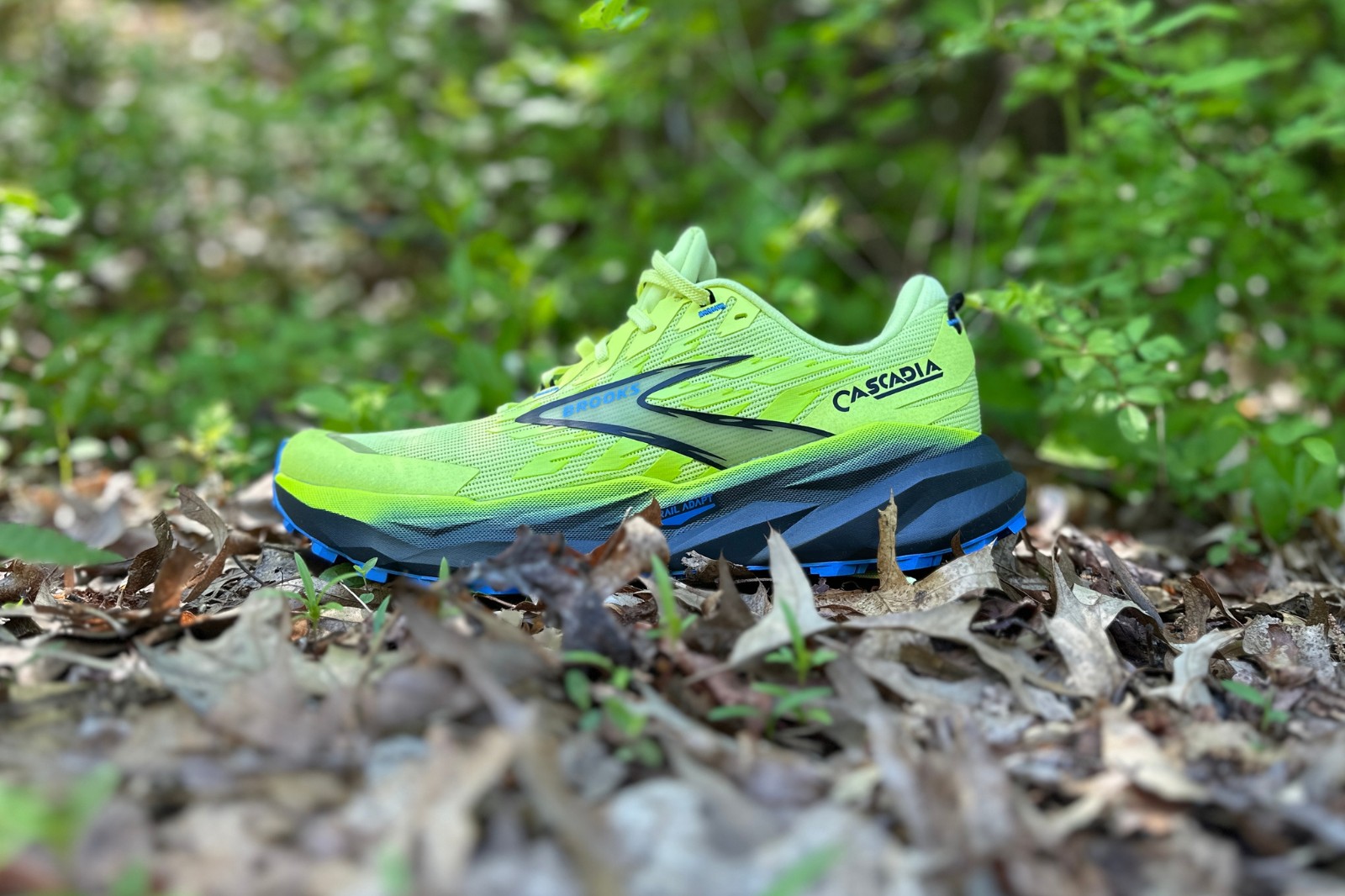
Daily runs on all kinds of trails
10.5 oz. (297 g) for a US M9,
9.4 oz. (266 g) for a US W8
35 mm in heel, 29 mm in forefoot (6 mm drop)
Say hello to one of the OG trail runners. Back in the day, this was everyone’s first trail shoe. The Brooks Cascadia series has always been known for stability, protection, grip, and some cushion. The newest version has all of that in the lightest and most versatile edition to date. Even though the stack is a little higher, Brooks uses a Trail Adapt stability system to allow runners better control throughout their trail runs.
Drawbacks? It seems like Brooks made the rock plate thinner, which might limit the Cascadia on some of the more aggressive trails you may encounter.
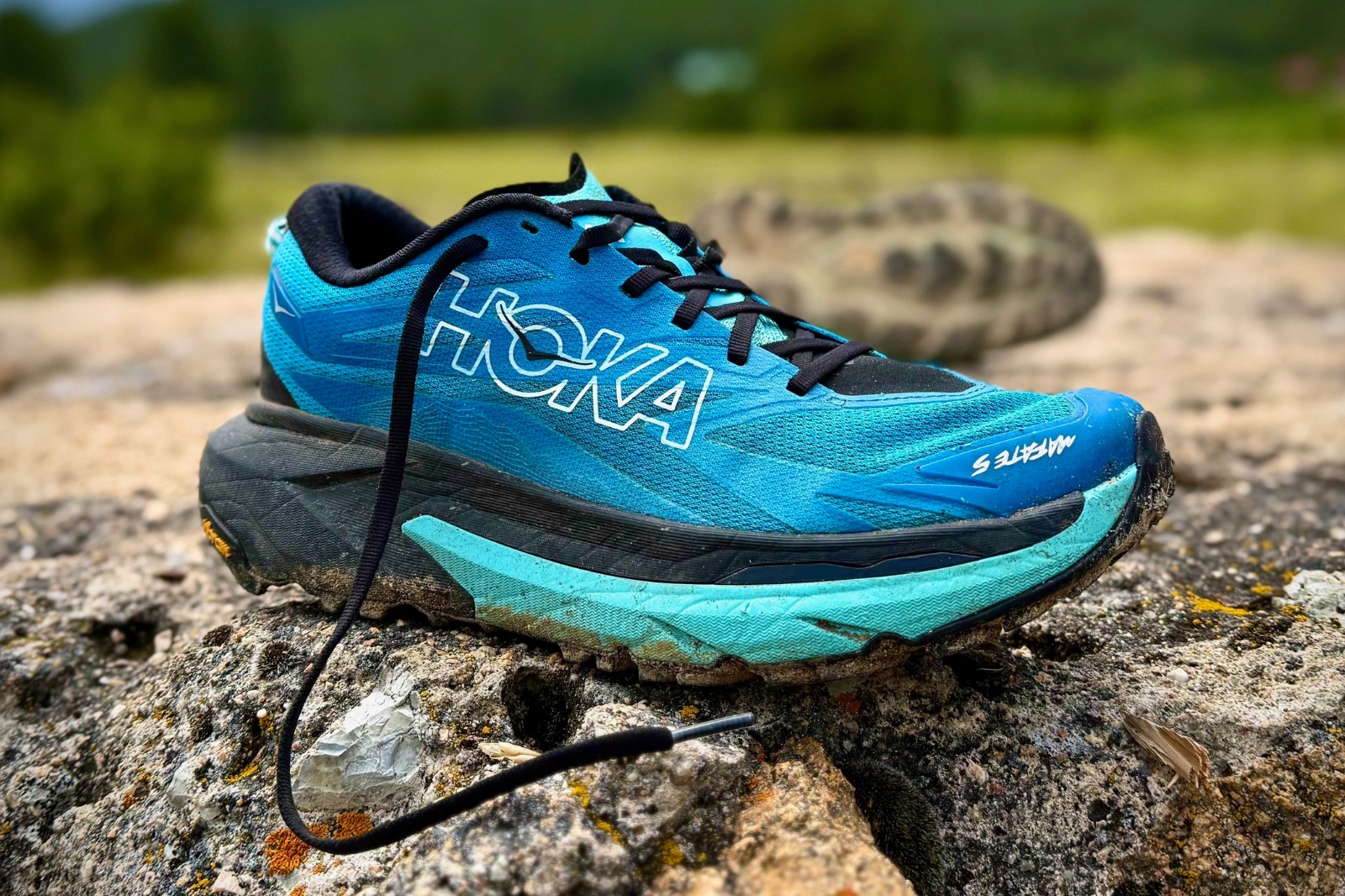
Maximal cushion, long-distance endeavors
11.7 oz. (332 g) for a US M10,
10.1 oz. (286 g) for a US W8
44 mm in heel, 36 mm in forefoot (8 mm drop)
The most likely reason you would check out Hoka is for the cushion, baby! That’s absolutely what they built their brand on. The Mafate was their original idea. Nowadays, it has evolved into a maximum cushioned option with one of the highest stacks of any trail shoe.
Luckily, within that lusciously soft and bouncy foam is a forefoot stability mechanism that helps runners keep rolling down the trail. For beginner trail runners, this is a more expensive option, but if cushion is what you seek, this is the one that does it best.
Drawbacks? It did pick up an ounce over the last version, so it’s not the lightest trail tackler on the block.

All-around adventuring
9.5 oz. (270 g) for a US M9,
8.1 oz. (230 g) for a US W7.5
34 mm in heel, 28 mm in forefoot (6 mm drop)
Unless you frequent the mountains or are a climber, La Sportiva may be a brand you are unfamiliar with. Their origins are in the Dolomites of Italy, and they are proud of it. It boils through to their footwear too. While many of their options are more specific, the Prodigio broadens their lineup to include all types of terrain.
We loved that the La Sportiva Prodigio is a true do-it-all shoe with the true ability to run on more technical terrain, too. Runners will find the Prodigio hits a middle ground in fit, underfoot protection, and grip to promote versatility.
Drawbacks? Despite La Sportiva’s claims, there’s no way you can call the Prodigio a wide-fitting shoe. Sorry, Jarrett.
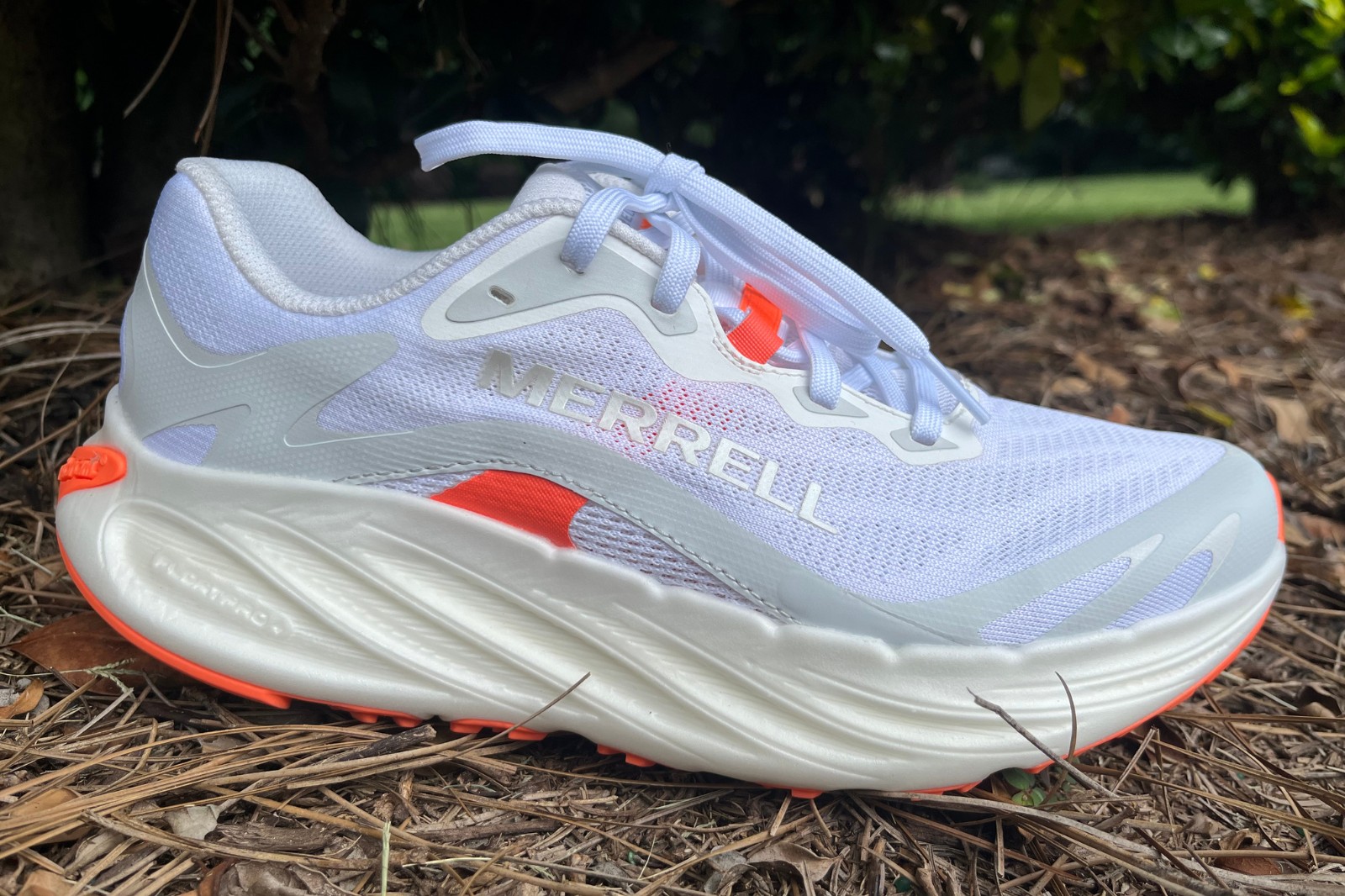
Light trails and gravel
9.17 oz. (260 g) for a US M9,
7.05 oz. (200 g) for a US W7.5
32 in the heel, 26 in the forefoot (6 mm drop)
There is a whole category of trail running shoes that are identified as “gravel shoes.” The Merrell ProMorph is one of them. This shoe is versatile in the sense that it can run roads, gravel, and light trails all with ease. If you’re planning on staying on the “easier” side of trail terrain or need to traverse many surfaces, the Merrell ProMorph is a worthy option.
Drawbacks? As a gravel shoe, the ProMorph can shine on limited terrain.

Long-distance, less technical runs
10.3 oz. (294 g) for a US M9,
8.3 oz. (236 g) for a US W7
42 mm in heel, 38 mm in forefoot (4 mm drop)
Here’s another max-stack option for those seeking cushion and a smoother ride. The New Balance Hierro v9 is quite different from its predecessors. This one is truly soft and has a fun, bouncy ride to accompany it. This shoe does have a wider base and a dual-density midsole foam to provide light stability. Even so, our reviewers believe this shoe is best for lighter trails, but it can go any distance.
Drawbacks? As mentioned, the Hierro v9 isn’t the most versatile shoe on this list. It has a wide base and gentle tread, though, so you can wear it for coffee post-run.

Road-to-trail adventures
10.1 oz. (286 g) for a US M9,
8.6 oz. (244 g) for a US W7.5
37 mm in the heel, 27.5 mm in the forefoot (9.5 mm drop)
This will be one of the more familiar options for beginner trail runners because the Nike Pegasus is their most popular road running model. The Nike Pegasus Trail 5 takes that base and puts a little dirt on it. This is a versatile option for crossing between pavement and light trails. A more aggressive outsole (compared to the road version) is a must-have, along with the more tenacious upper and fit.
Drawbacks? As with a lot of Nike trail shoes, the tread underfoot can be hit or miss when you get onto more treacherous terrain.

Training and beginner-friendly trail races
9.5 oz. (269 g) for a US M9,
8.5 oz. (242 g) for a US W7.5
34 mm in heel, 26 mm in forefoot (8 mm drop)
The Salomon Genesis has to be one of the best-value trail shoes currently available. At $150, it is the only option with a Matryx upper (very durable) and a supercritical midsole foam (cushioned yet energetic).
Besides the value proposition, our reviewers appreciated a secure fit and good grip. As a package, the Salomon Genesis is a versatile crowd-pleaser at a solid price.
Drawbacks? You might find that the toebox is a little pinchy, at least until you break in the shoe.

Any trail race you can dream up
9.7 oz. (277 g) for a US M9,
8.6 oz. (246 g) for a US W7
28 mm in heel, 24 mm in forefoot (4 mm drop)
Known as one of the original “grip it and rip it” trail shoes, the Saucony Peregrine 15 continues its legacy with an aggressive outsole for excellent grip on any trail surface. Even though trail running footwear doesn’t have a “daily trainer” category, our reviewers remarked that this is as close as we’ll come to a daily trainer for the trails. It’s versatile enough to do anything you ask, from flowy singletrack to steep downhills — the Saucony Peregrine 15 can do it all.
Drawbacks? The PWRTRAC compound still doesn’t cut it on wet wood.

Everyday trail adventures
10.1 (287g) for a US M9,
8.9 oz. (254 g) for a US W7
32 mm in heel, 26 mm in forefoot (6 mm drop)
The North Face has released one of the best all-around lineups of trail running shoes in recent history. One of our favorites for a variety of reasons is the North Face Enduris 4. It has some of everything from a secure yet accommodating fit, a unique Dream foam midsole, a Vectiv 3.0 stability system, and a tacky outsole.
When all of those ingredients are combined, the Enduris 4 is a shoe that can go far, pick up the pace, and run on some iffy terrain when needed. This is a truly modern and pleasing trail running option.
Drawbacks? Something seems wrong with Dream Foam this year — it might run out of juice a little sooner than expected.
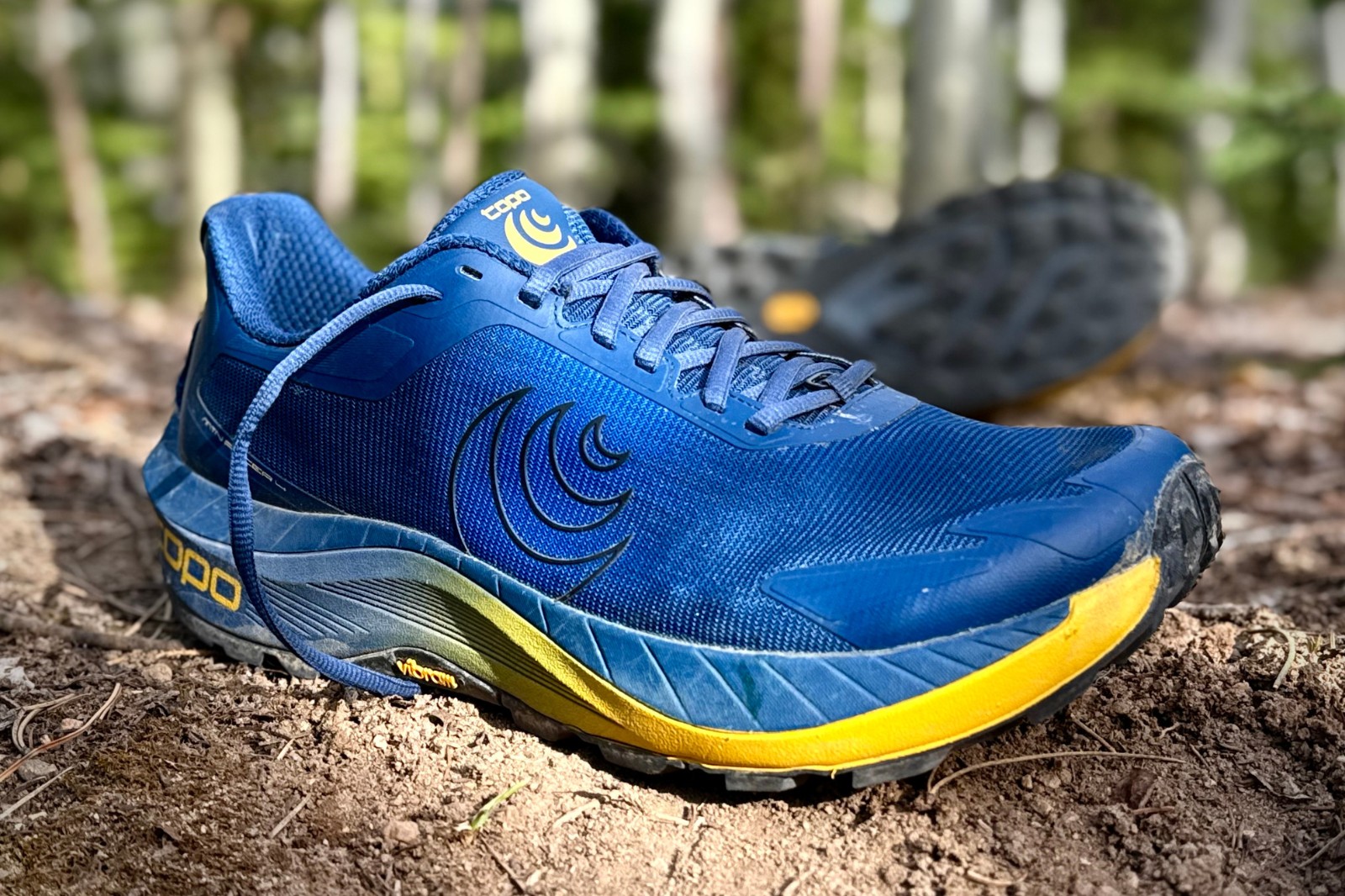
Daily runs on any terrain
10.4 oz. (295 g) for a US M9,
8.5 oz. (241 g) for a US W7
33 mm in heel, 28 mm in forefoot (5 mm drop)
If you’re looking for another foot-shaped option with a little drop, the Topo Athletic MTN Racer 4 could be exactly what you’re looking for. We have always known Topo Athletic to have a secure fit in the heel and midfoot with a broader fit for the forefoot. That’s very true with the MTN Racer 4, which is confidence-inducing for trail running.
More specifically, the MTN Racer 4 has an aggressive Vibram Megagrip outsole and an airy ride via a Zipfoam midsole. Because this option has a medium-high stack height, this MTN Racer4 is also quite protective against rocks and roots without losing some connection to the ground.
Drawbacks? We ended up getting quite a bit of mud stuck in this specific Vibram Megagrip tread.
All of our recommendations come directly from our feet to your screen. We test countless running shoes here at Believe in the Run, and we let our reviews guide our decisions. However, we also consider other reviews and our BITR community, as not every runner has the same experiences. We also aim to stick with shoes that are currently available so you can give our recommendations a try.
Want to learn more about how our review process works? Check out this guide.
Have something to say? Leave a Comment

Robbe is the senior editor of Believe in the Run. He loves going on weird routes through Baltimore, finding trash on the ground, and running with the Faster Bastards. At home in the city, but country at heart. Loves his two boys more than anything. Has the weakest ankles in the game.
More from Robbe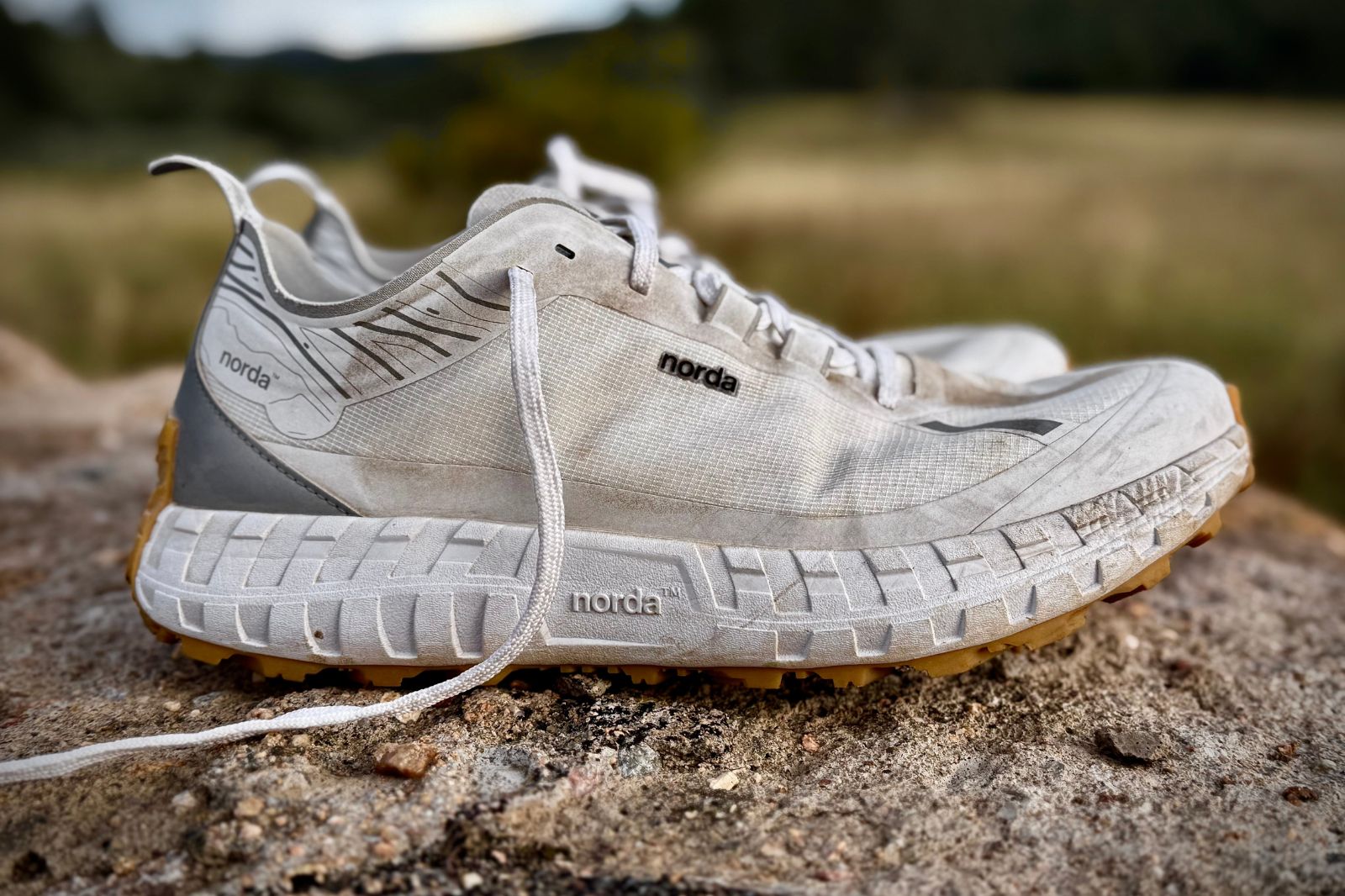
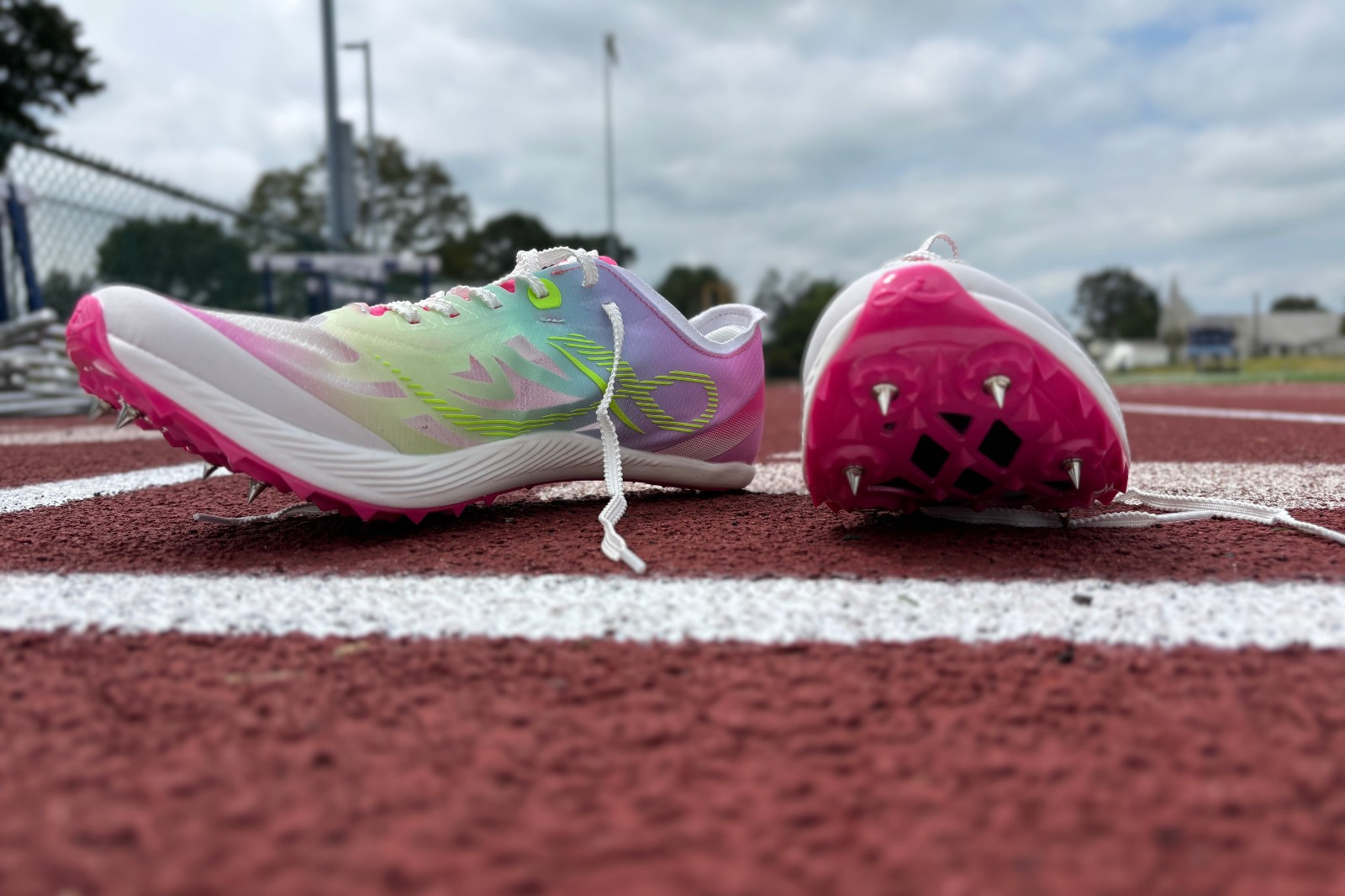
The puma voyage nitro 4 has been my first trail running shoe very good so far you should all check it out as another recommendation